3 October: Selena appears on the cover of the latest issue of Fast Company Magazine
Selena graces the cover of the latest issue of ‘Fast Company’ magazine as she talks about sucess of her beauty brand ‘Rare Beauty’, getting back to social media, new music and more.
Full photoshoot: gallery.armyofselenagomez.com
“When I was younger, I thought I could save the world,” says Gomez. She cries while recalling some of the rawer encounters she’s had with fans. “It breaks my heart to hear a girl come up to me and say, ‘I was so close to taking my life, but when I watched your documentary, I couldn’t imagine doing that anymore.’ That’s the coolest gift, but yeah, look at me . . . ,” she says, gesturing at her tears. “It’s crazy to have that responsibility.”
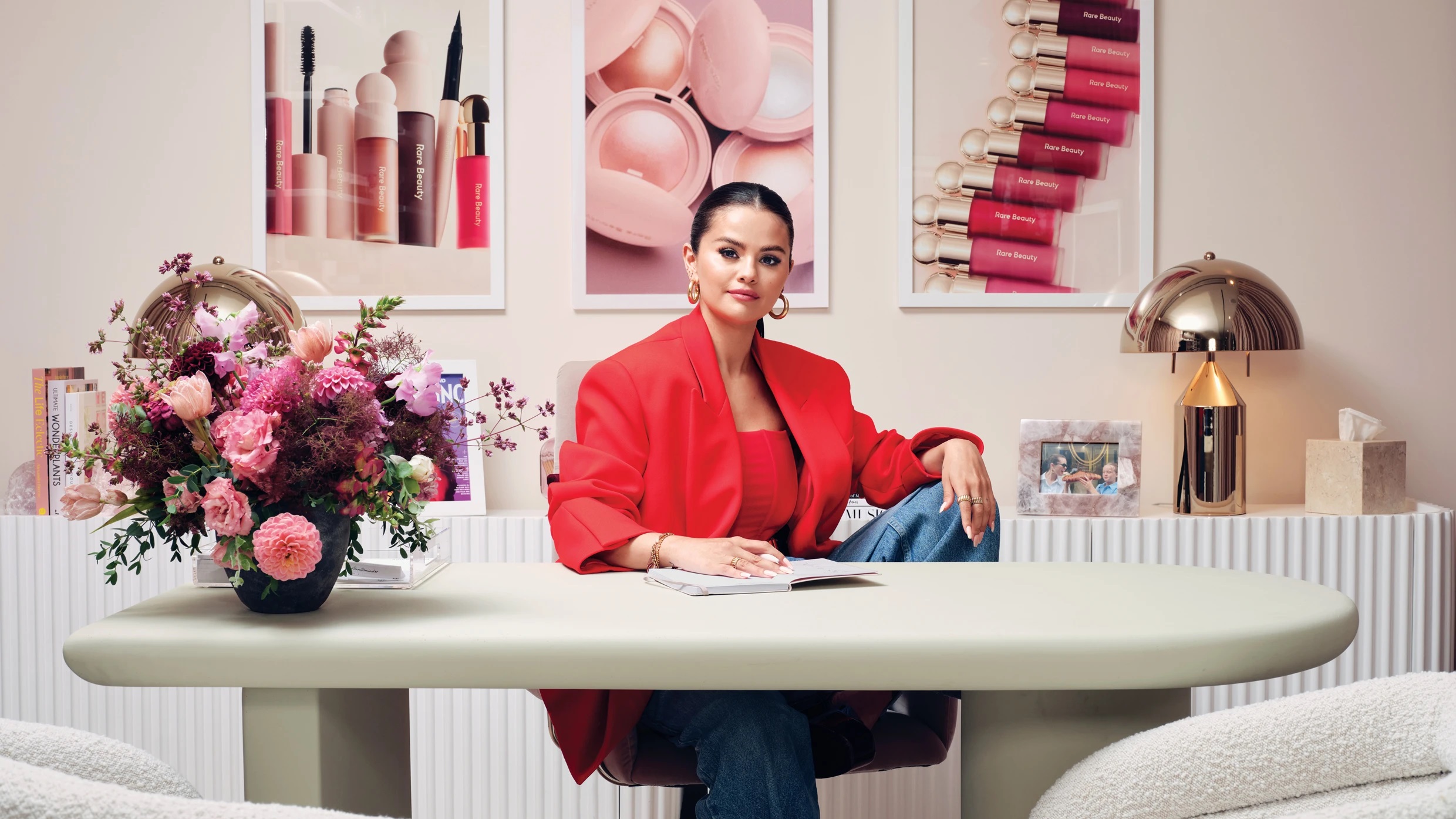
To speak so deliberately about perhaps the most difficult time of her life was a risky choice for a star raised in the Disney machine. “I grew up being a people pleaser,” Gomez admits. “I had a responsibility at a very young age—young people were looking up to me. I didn’t know who I was. Having that responsibility would make me walk on eggshells a lot. I thought maybe it would be damaging to tell people who I am. It started to become a threat that freaked me out. Well, if you’re not right, then you can’t work.”
Looking back now, she says, “I went through a really hard season. It was my highs and my lows, and I didn’t know what to do, so I couldn’t control it. I would want to cancel things. It was just a tormented feeling. That’s why, when I found out my diagnosis, it was just, ‘Oh, okay, I feel a bit relieved, I understand a bit more.’ I got second opinions. I went to doctors. I’m fortunate enough to be able to have people who can help me survive every day.”
During her recovery, Gomez— who was still reeling from her final breakup with longtime on-again, off-again boyfriend Justin Bieber—realized that social media had become too toxic a space for her. “I had just gotten my heart broken. I didn’t need to see what everyone was doing,” she says. “Then there were those moments of not feeling positive about how I looked because of what I’d see on Instagram. Wow, I wish my body looked like that.” She handed her password over to her assistant and logged off. With time, she realized how quickly a person’s head can clear when they look ahead instead of down.
Автор публикации @selenatorss Посмотреть в Threads
Growing up in Grand Prairie, Texas, Gomez loved accompanying her mother to the MAC cosmetics store. Her single mom paid the bills with a juggle of part-time jobs, working at Starbucks, Dave & Buster’s, and a modeling agency, and also as a makeup artist. “My mom would give me any leftover makeup, and I would just play with it all the time.”

When she started exploring the idea of starting a makeup company of her own, Gomez met with a trio of executives who’d shepherded NYX cosmetics from a scrappy startup through its reported half-a-billion-dollar sale to L’Oréal. They became Rare Beauty’s founding team: CEO Scott Friedman, chief digital officer Mehdi Mehdi, and chief product officer Joyce Kim. “You have to think about the beauty industry back in 2018, 2019,” says Mehdi, who helped originate the idea of influencer marketing while at NYX. “There was a lot of pressure on young girls and women to look a certain
way.” Gomez had spent years “scrolling on Instagram and seeing people saying this and that about her, and she’d feel terrible about herself. She was like, ‘If I’m feeling this way, what are all these other young people who aren’t as equipped as I am feeling?’ So early on, we knew there was a reason to exist that was outside of just [being] a celebrity brand for Selena Gomez.”
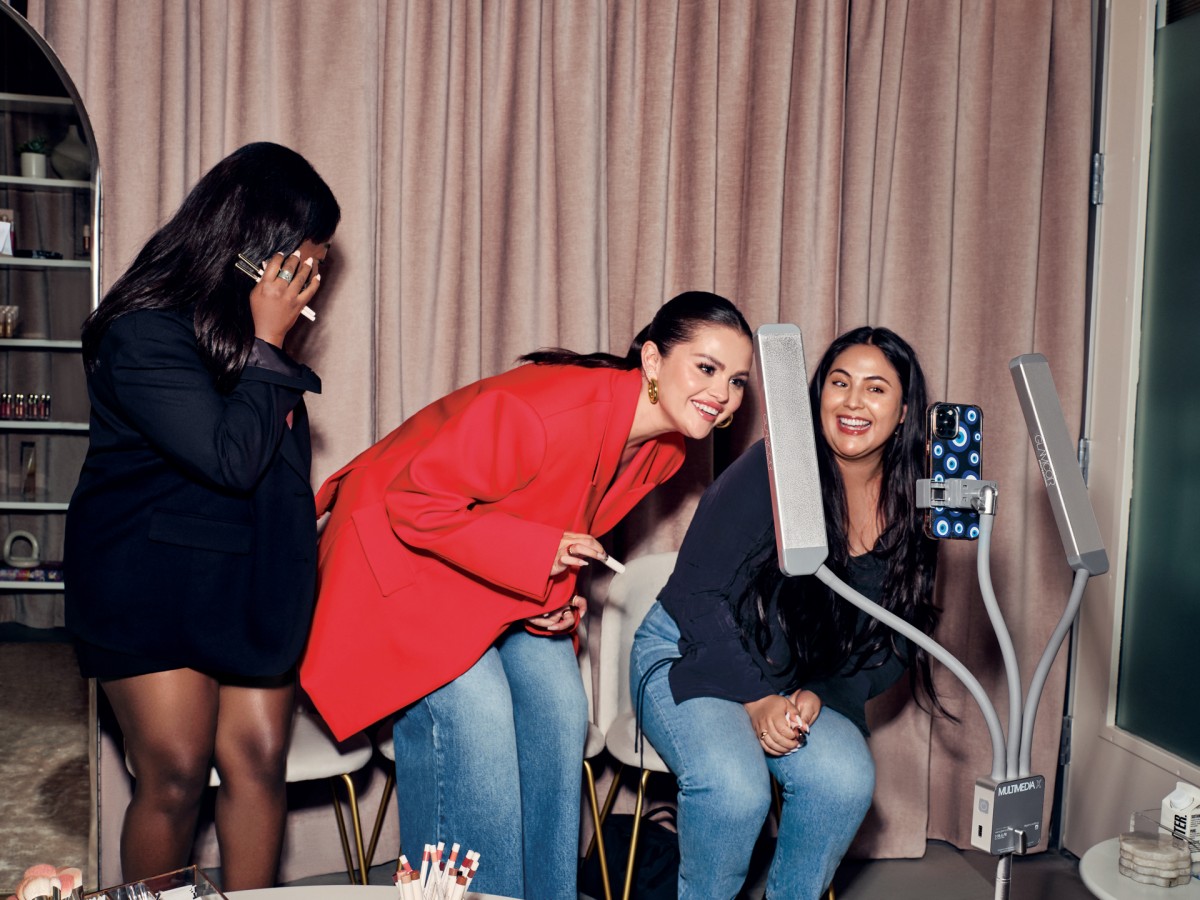
Today, Rare Beauty is sold exclusively in 36 countries through its own site and at Sephora. The brand, which is vegan and cruelty-free, is considered “entry-level prestige,” a category within the fast-growing “prestige” sector. According to Larissa Jensen, a beauty adviser at Circana, prestige sales in the U.S. totaled $14 billion in the first half of 2023, a 15% increase over the previous year; the mass beauty market accounted for $28 billion, and it grew 9%. (Circana doesn’t circulate specific figures about entry-level prestige.) The company is well positioned to grow with its audience and go upmarket over time.
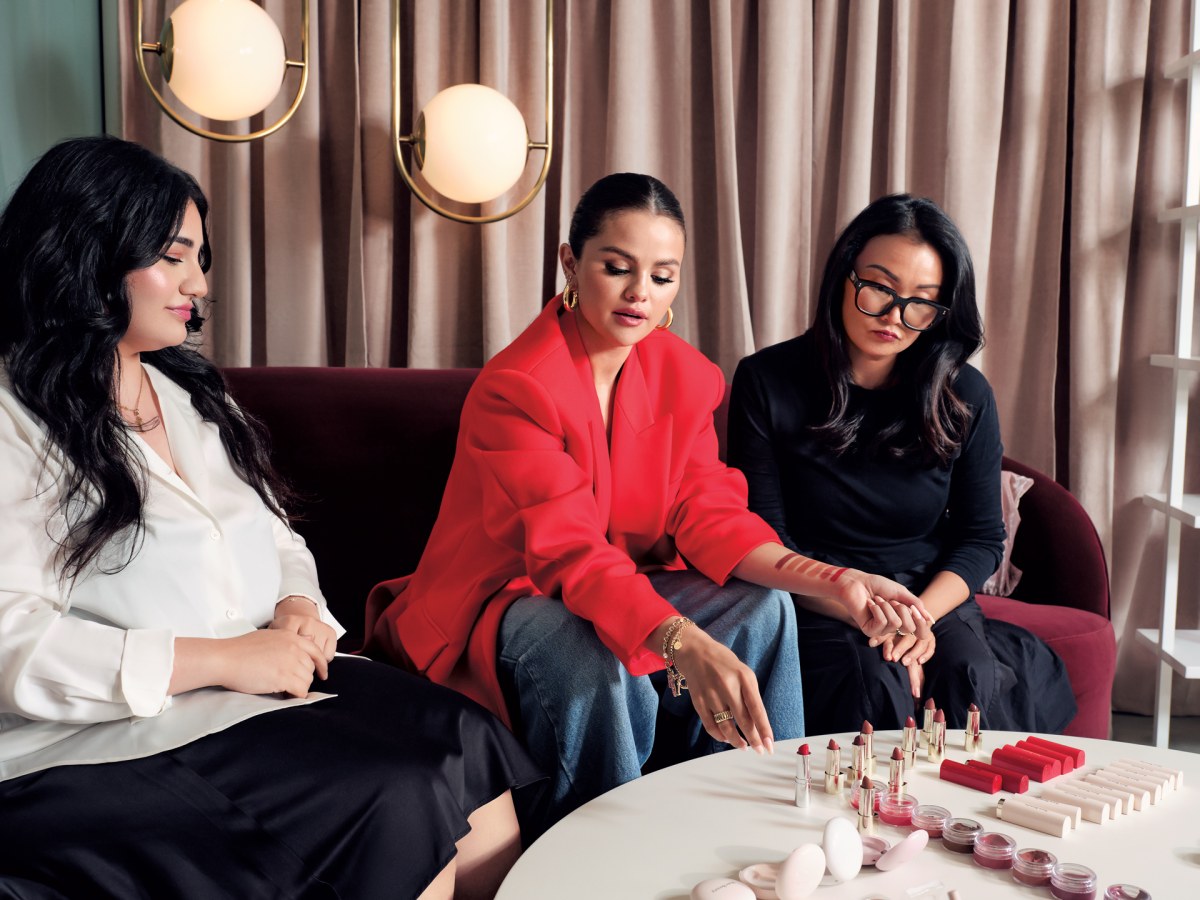
Gomez, meanwhile, is wrapping up her day before spending the evening in the studio, where she’s working on her new album, her first in three years. She describes the music as a fun departure. “I love sad-girl music; I’m really good at that,” she says, as the gentle sound of a waterfall from the pool trickles in through the open door. “However, I can’t really write that if I’m not sad. I’ve had to relearn what being me and being happy looked like. There is not one sad song on this whole album.”
Still, “I’ve never promised anyone that I’ll never have a bad day again,” she says. “I’ve always been honest with my fans. Even when I take breaks from social media, I’ll say I’m taking a break.”
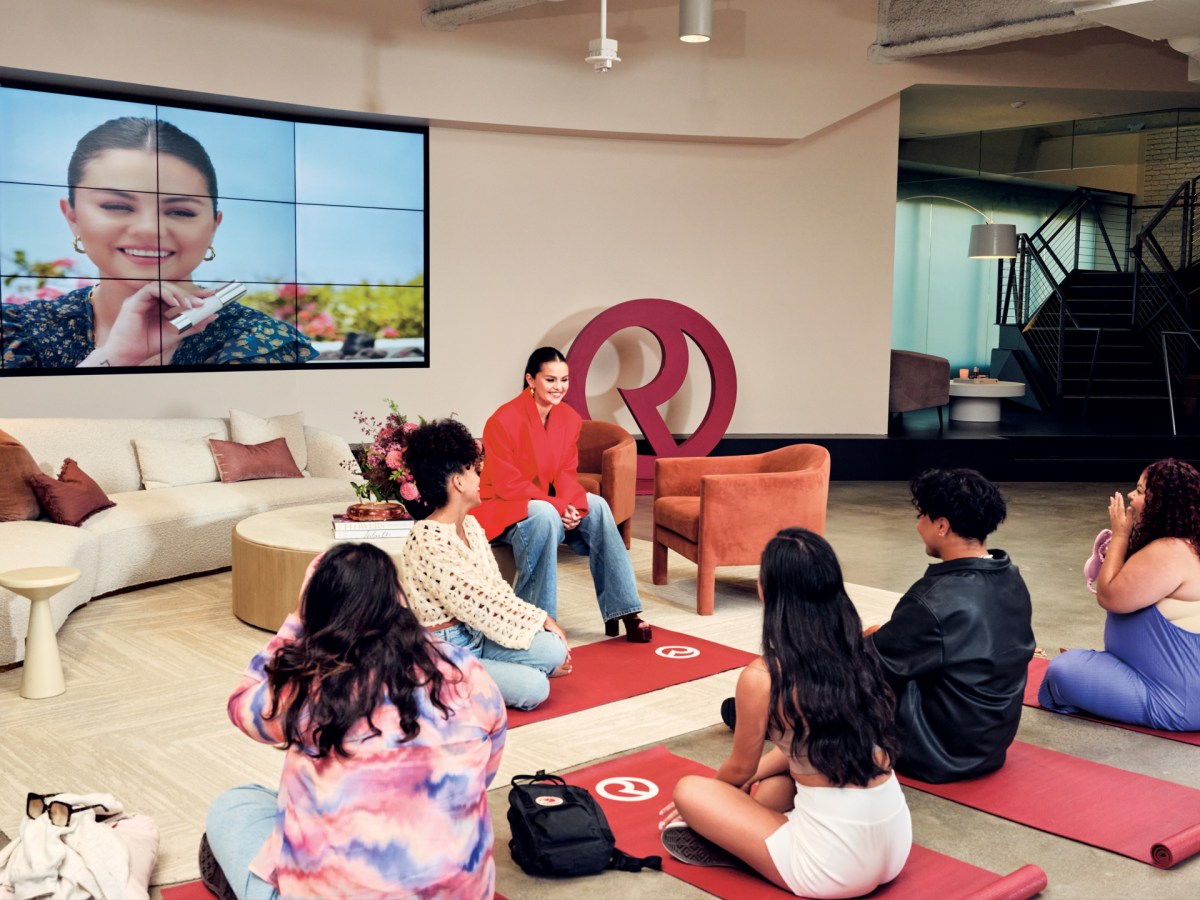
For now, returning to social media means accepting the headaches that come with it. Recently, snoops noticed that Gomez had unfollowed Dua Lipa, which led to feverish speculation of a feud. “It was an accident!” says Gomez, laughing. “I was just cleaning up some of my Instagram. Then somebody called me and was like, ‘What happened with Dua?!’” In a public gesture, the next day Gomez wore a dress from Versace, which had recently launched a collaboration with Dua Lipa, to a Rare Beauty event and posted a picture of herself celebrating the other woman’s win to prove there was no beef.
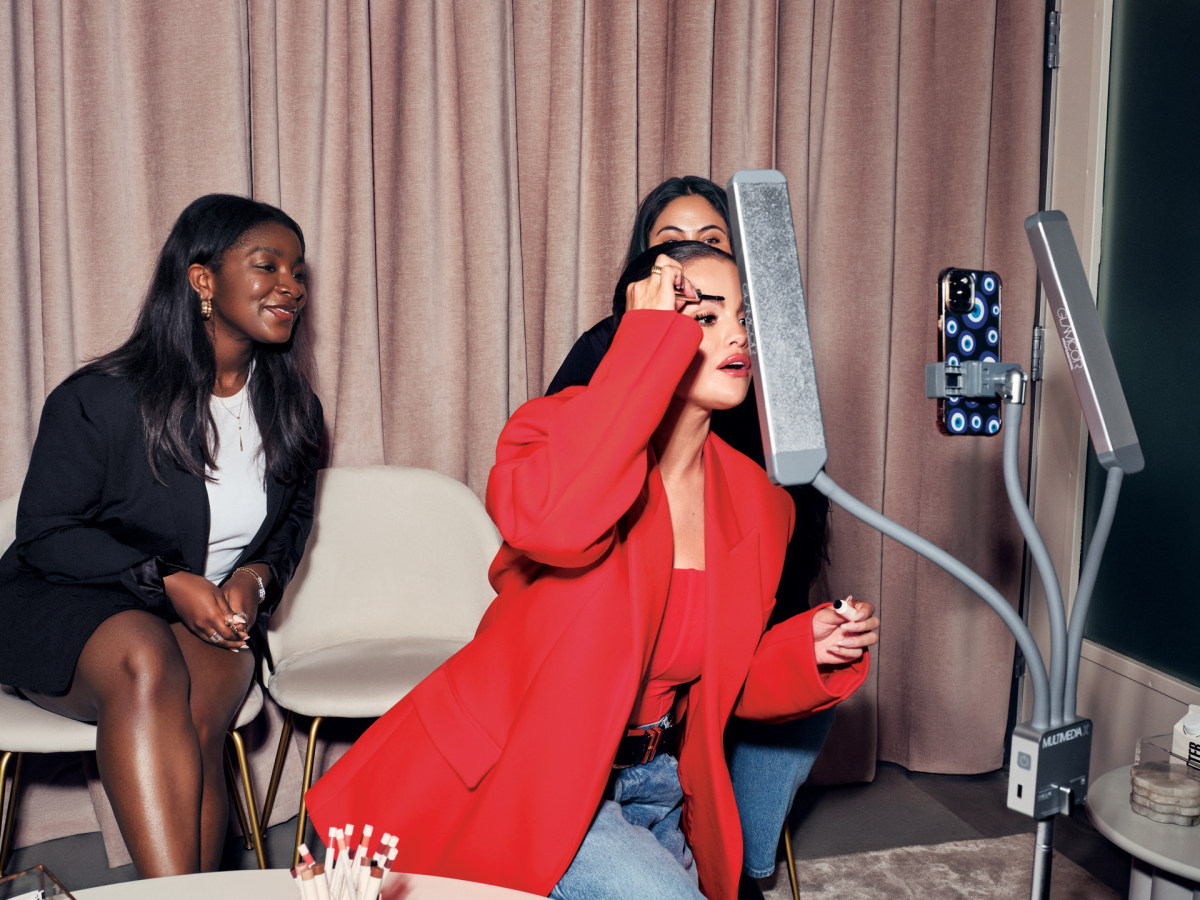
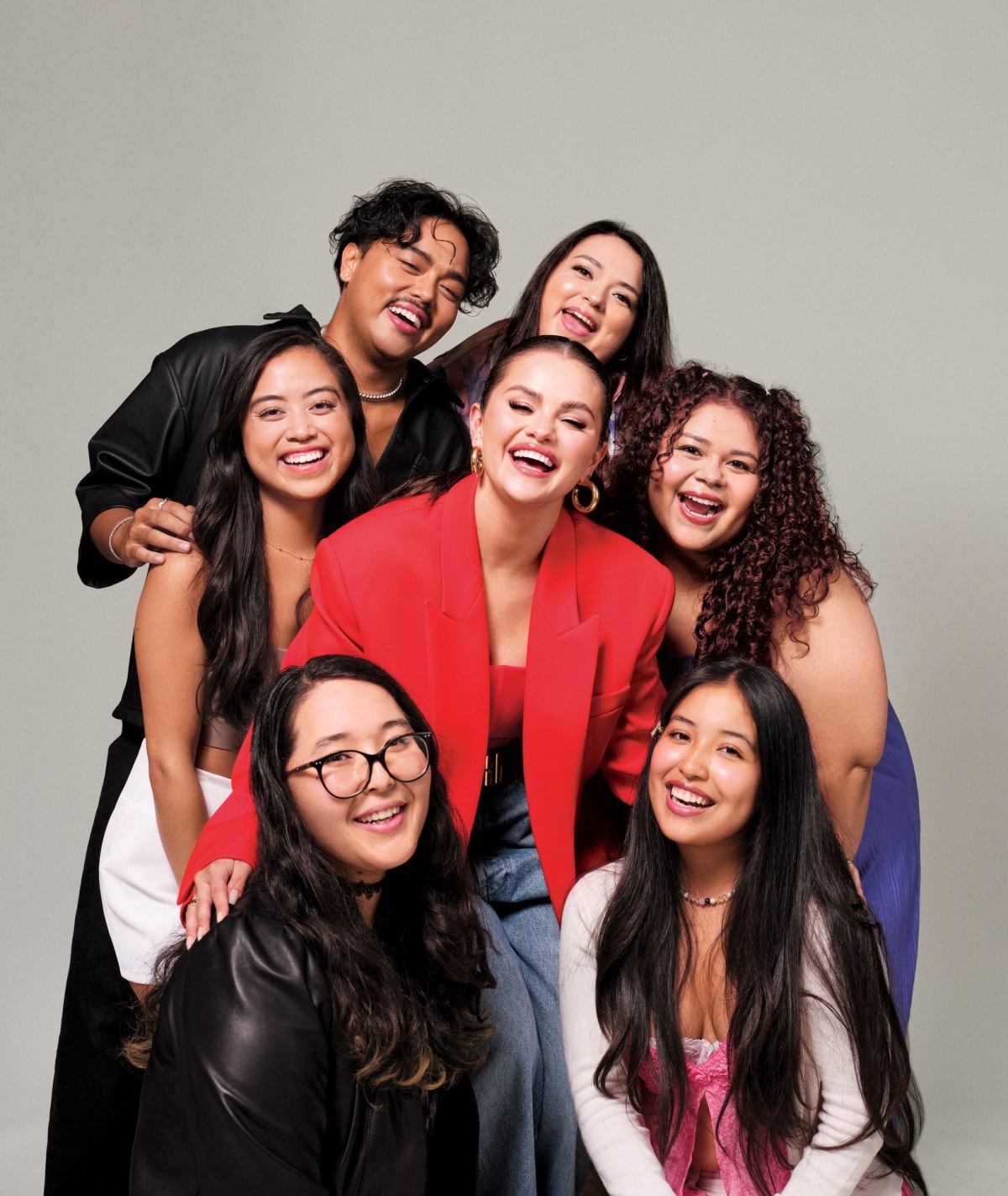
Read the full interview at: www.fastcompany.com
No comments yet